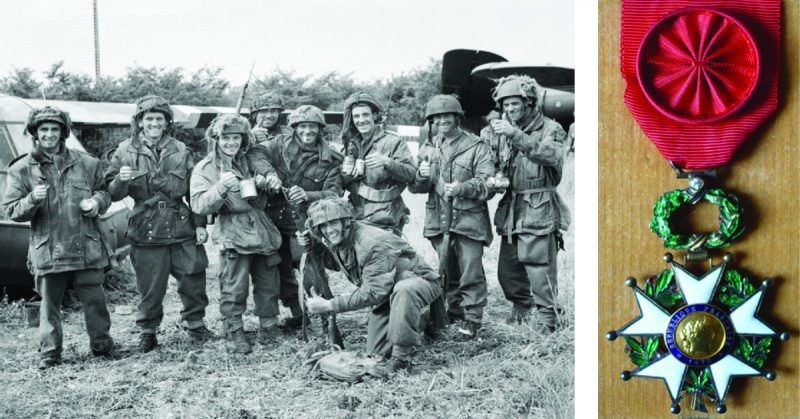Eric Barley, a 92-year-old veteran of World War II, was awarded the Légion d’Honneur, France’s highest honor for bravery, in February this year. Three months later, the great-grandfather passed away.
The Légion d’Honneur was awarded to him for his participation in the liberation of Ranville from Nazi forces. Barley parachuted in along with thousands of paratroopers from the British 6th Airborne Division as part of Operation Tonga on June 5, 1944. They were assigned the task of liberating important villages in support of Operation Overlord on June 6th.
Barley was a father of two. His daughter, Theresa Barley, lives with her mother in Rushfield Gardens. She said, “He was just so proud and was showing it to everyone. He used to talk about being dropped in certain areas and being freezing cold all night long. He was a wonderful father, family man, and husband, too. We are so proud of him.”
Barley was a bricklayer before he joined the 12th Battalion (Yorkshire) Parachute Regiment, an airborne infantry battalion that was part of the 6th Airborne Division.
On one drop in France, he saw figures heading towards him in the night. “Our code was to say ‘fish’ and if they replied ‘chips’ that was all right, otherwise you’d had your chips,” he recalled. “The bloke said ‘chips’ so we walked towards our rendezvous but heard German voices and bullets. There were planes overhead and you could see tracer bullets bursting towards them.”
The German voices were from a nearby mortar platoon. A young British medic threw a grenade in and killed all of the enemy soldiers.
Barley was wounded at Le Mesnil just two weeks after D-Day. He was hospitalized for five months before he returned to the front to fight in the Battle of the Bulge. He went on to fight in Germany.
After the end of the war, he continued to serve with the 12th Battalion as they were sent to the Far East. He returned to Sarn and then emigrated to Australia with his family in 1964.
He and his wife Vera returned to Wales after twenty years. His daughters remained in Australia. Erica married, and Theresa returned to Wales after 40 years.
